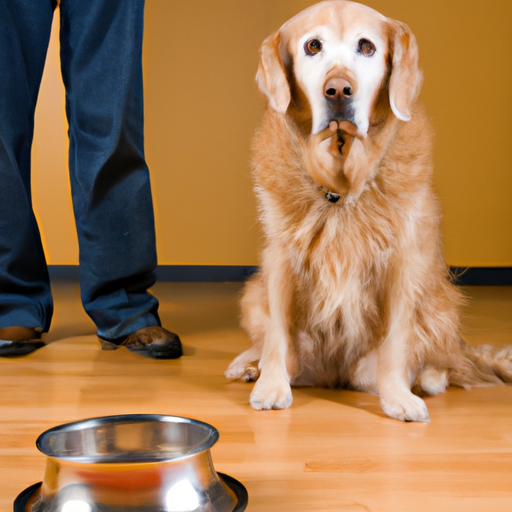As your dog ages, his nutritional needs and eating habits may change. But when your older dog stops eating, it can be a cause for concern. It’s essential to understand why this might be happening and what you can do to help.
Table of Contents
1. Understanding the Issue
2. Common Causes
3. Tips for Encouraging Eating
4. When to See a Vet
5. FAQs
Key Takeaways
– Older dogs can stop eating for a variety of reasons, many of which are health-related.
– Simple changes in diet or feeding routine can sometimes encourage your dog to eat.
– It’s crucial to consult with a vet if your dog refuses to eat for more than 24 hours.
Understanding the Issue
When your canine companion stops eating, it can be a sign of various health issues, some serious and others less so. It’s crucial to monitor your dog’s behavior and seek veterinary advice if necessary.
Common Causes
Here are several reasons why your older dog might stop eating:
- Dental problems: Dogs can develop dental issues, like gum disease or tooth decay, which can make eating painful.
- Health conditions: Diseases such as kidney failure, liver disease, and cancer can cause a loss of appetite.
- Medication side effects: Some medications can cause nausea or loss of appetite.
- Behavioral issues: Changes in environment or routine can stress your dog and affect their appetite.
For more in-depth information on these common causes, visit the American Kennel Club’s page on senior dog health.
Tips for Encouraging Eating
If your older dog has stopped eating, here are some strategies that might help:
- Change their diet: You might try switching to food specifically formulated for senior dogs. This guide on dog food for older dogs offers some excellent options.
- Feed smaller, more frequent meals: This can be easier on your dog’s digestive system.
- Make mealtime enjoyable: Try hand-feeding your dog, or mix dry food with a bit of canned food to make it more appealing.
When to See a Vet
If your dog refuses to eat for more than 24 hours, it’s time to consult a vet. This could be a sign of a serious health issue that requires immediate attention. Also, pay attention to any additional symptoms such as lethargy, excessive thirst, or changes in behavior. These could also indicate a health problem.
FAQs
Q: Can changes in routine cause my older dog to stop eating?
A: Yes, changes in routine can stress your dog and affect their appetite. Try to keep their routine as consistent as possible.
Q: Should I change my dog’s diet if they stop eating?
A: It can be worth trying a new type of food, especially one formulated for senior dogs. But it’s always a good idea to consult with your vet first.
Q: How long should I wait before taking my dog to the vet?
A: If your dog refuses to eat for more than 24 hours, or if they’re showing other signs of illness, it’s time to see a vet.
In conclusion, while it’s common for older dogs to have changes in their eating habits, a complete refusal to eat can be a sign of a serious issue. It’s important to monitor your dog’s behavior, try simple strategies to encourage them to eat, and consult with a vet if necessary. For more on senior dog care, check out these resources on caring for a senior dog and understanding dog behavior.



